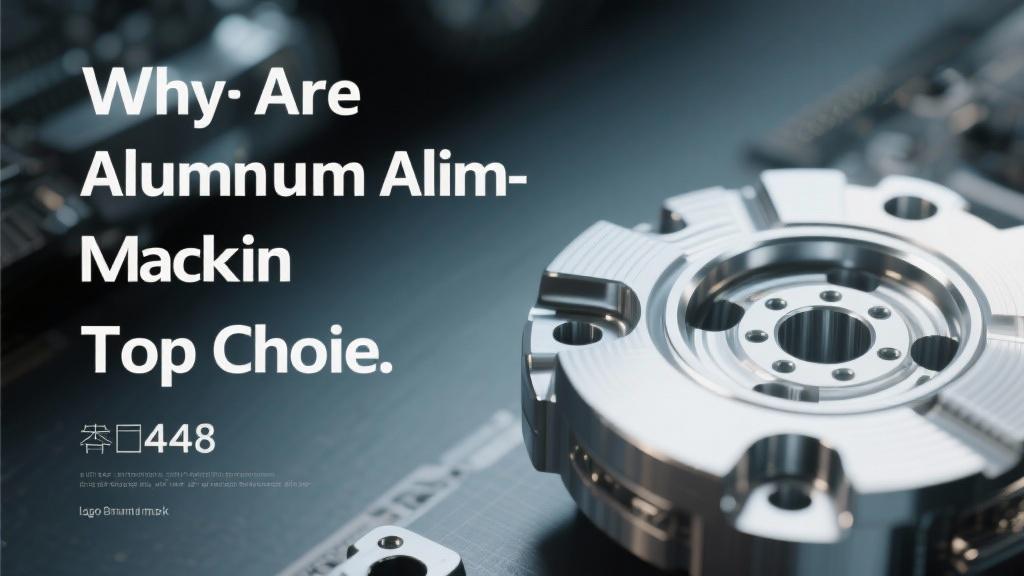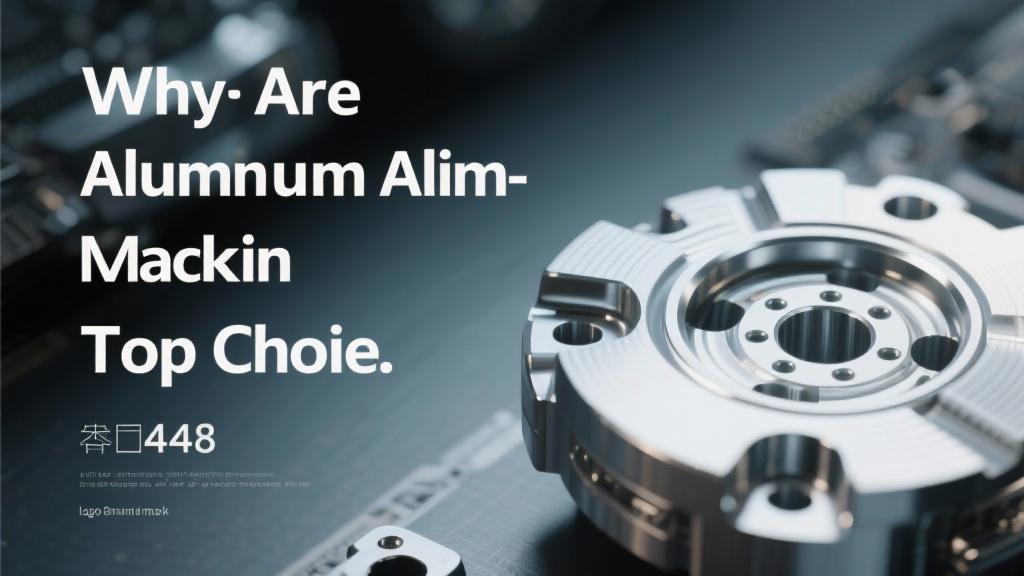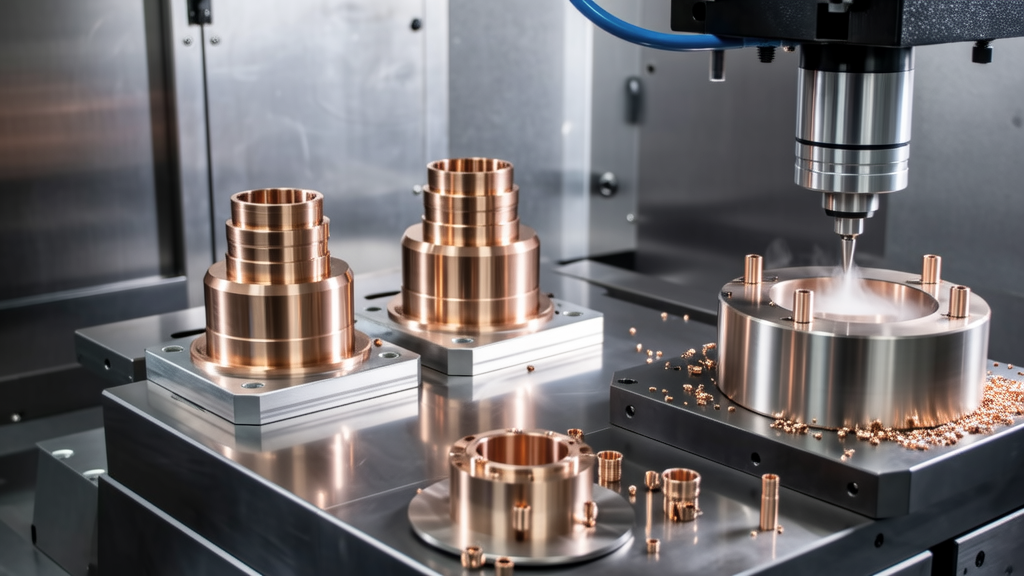Additionally, the excellent corrosion resistance of these materials ensures longevity, reducing maintenance costs and enhancing the overall durability of automotive components. The versatility of aluminum alloys allows for intricate designs and precise machining, making them ideal for various applications, from engine components to body structures.
Moreover, with the increasing focus on sustainability, aluminum’s recyclability positions it as an environmentally friendly choice, aligning with the industry’s shift towards more eco-conscious practices. As automakers continue to prioritize innovative materials to meet consumer demands and regulatory standards, understanding the advantages of aluminum alloy machined parts becomes essential. Join us as we explore the essential features, benefits, and future trends related to aluminum alloys in automotive applications, revealing why they have become the leading choice for modern vehicles.
### Why Are Aluminum Alloy Machined Parts the Top Choice for Autos?
Question: What are the main advantages of aluminum alloy machined parts in the automotive industry?
Answer: Aluminum alloy machined parts have become increasingly popular in the automotive sector due to several compelling advantages. First and foremost, they are significantly lighter than traditional materials like steel. This lightweight characteristic leads to enhanced fuel efficiency and improved handling — key factors that both manufacturers and consumers prioritize in today’s market. For instance, reducing the weight of a vehicle by just 10% can lead to an approximately 7% improvement in fuel efficiency.
Moreover, aluminum alloys exhibit remarkable strength-to-weight ratios, meaning they can withstand considerable stress while remaining lightweight. This is critical in automotive applications where safety and structural integrity are paramount. Additionally, aluminum’s natural resistance to corrosion adds to the longevity of components, which in turn reduces maintenance costs for vehicle owners.
Question: How does the machinability of aluminum alloys contribute to their popularity?
Answer: When it comes to manufacturing, aluminum alloys are particularly favored for their excellent machinability. They can be easily and precisely machined to create complex shapes, which allows for greater design flexibility in automotive components. Unlike some harder materials, aluminum alloys can be machined at high speeds without compromising quality, making the production process not only efficient but also cost-effective. This characteristic is particularly advantageous for mass production, where consistency and precision are crucial.
Additionally, advancements in CNC machining technologies have further enhanced the ability to create intricate designs using aluminum alloys, thereby expanding their applications within automotive manufacturing. For context, many car manufacturers are now integrating aluminum components into everything from engine blocks to body panels as they strive to create more efficient and performance-oriented vehicles.
Question: Is aluminum alloy machining an environmentally sustainable option?
Answer: Absolutely! The environmental impact of materials used in automotive production is becoming an increasingly important factor in manufacturing decisions. Aluminum is highly recyclable — in fact, almost 75% of the aluminum ever produced is still in use today through recycling. This significantly reduces the need for raw material extraction, which can be both environmentally and economically taxing. When aluminum parts reach the end of their lifecycle, they can be reprocessed and reused, making them a more sustainable choice in contrast to conventional materials, whose recycling processes may be less efficient.
Moreover, the energy consumed in producing recycled aluminum is roughly 95% less than that required for virgin aluminum, making it a far more energy-efficient choice overall. As the global automotive industry faces regulations surrounding sustainability, the shift towards aluminum is not just a trend; it represents a strategic move towards a more sustainable production model.
Question: What role does innovation play in the use of aluminum alloys?
Answer: Innovation is at the heart of why aluminum alloys are the top choice for many automotive applications. Continuous research and development are leading to new aluminum formulations that enhance properties such as strength, conductivity, and resistance to heat. For example, the development of ultra-high-strength aluminum alloys has allowed engineers to design lighter vehicles without compromising safety.
Many car manufacturers are also exploring hybrid combinations of aluminum with other materials to create composite parts that capitalize on the strengths of each material. These innovations not only improve the performance and safety of vehicles but also help in meeting stringent emission standards set by governments worldwide.
Car companies, like Tesla, have set the benchmark for using advanced materials in electric vehicles. Their approach highlights how innovation in aluminum alloys can lead to breakthroughs in automotive design and part manufacturing. This focus on innovation is crucial as the industry moves towards electrification and the need for components that can handle increased performance demands while maintaining efficiency.
Question: How do the economic factors affect the preference for aluminum alloy machined parts?
Answer: Economic factors are undeniably influential in determining material choices within the automotive industry. Initially, aluminum may present a higher upfront cost when compared to other materials like steel. However, the long-term savings associated with aluminum’s lightweight advantage can outweigh these costs. For example, vehicles constructed with aluminum alloy components generally consume less fuel, leading to significant savings over time for consumers.
Additionally, the reduced weight of vehicles contributes to lower emissions, aligning with increasingly stringent regulations that automotive manufacturers must adhere to. The potential for tax incentives or credits associated with producing greener vehicles also plays a role in promoting the use of aluminum over heavier alternatives. As consumer preferences shift towards eco-friendly vehicles, manufacturers are compelled to reconsider their material choices to remain competitive, resulting in a notable uptick in the use of aluminum alloys.
In summary, the top choice of aluminum alloy machined parts in the automotive industry stems from their lightweight nature, strength, versatility, and sustainability. As manufacturers continue to innovate and adapt to changing consumer demands and environmental concerns, aluminum alloys are likely to remain a dominant material in automotive production.

What are the main benefits of using aluminum alloy machined parts in cars?
Aluminum alloy machined parts offer numerous advantages in the automotive industry. First and foremost, they are lightweight, which enhances fuel efficiency and overall vehicle performance. For instance, reducing a car’s weight by just 10% can lead to a 7% improvement in fuel efficiency.
Additionally, these parts provide excellent corrosion resistance, ensuring longevity and reducing maintenance costs. Their versatility allows for intricate designs and precise machining, making them perfect for various applications like engine components and body structures.
How do aluminum alloys compare to traditional materials like steel?
Aluminum alloys are significantly lighter than traditional materials like steel, leading to better fuel efficiency and handling. They also offer a favorable strength-to-weight ratio, allowing them to withstand high stress while remaining lightweight. This makes aluminum a preferred choice for many automotive applications.
While aluminum may have a higher initial cost compared to steel, the long-term savings from improved fuel efficiency and reduced maintenance can make it more economical in the long run.
Is aluminum alloy machining environmentally friendly?
Yes, aluminum alloy machining is considered environmentally friendly due to the high recyclability of aluminum. Approximately 75% of the aluminum ever produced is still in use today through recycling, which significantly reduces the need for raw material extraction.
Recycling aluminum requires about 95% less energy compared to producing new aluminum, making it a sustainable option in the automotive industry, especially as manufacturers face increasing environmental regulations.
What innovations are driving the use of aluminum alloys in automotive manufacturing?
Recent innovations in aluminum alloys, such as the development of ultra-high-strength materials, are significantly enhancing their applications in automotive manufacturing. These advancements allow manufacturers to create lighter yet stronger components without compromising safety.
Furthermore, many car manufacturers are exploring hybrid combinations of aluminum with other materials, leveraging the strengths of each to produce more efficient and safer vehicles, particularly in the electric vehicle segment.
How do economic factors influence the choice of aluminum alloys in the automotive industry?
Economic factors play a critical role in the decision to use aluminum alloys in automotive manufacturing. Although aluminum may have a higher upfront cost than steel, its lightweight nature can lead to substantial long-term savings through improved fuel efficiency and reduced emissions.
Additionally, as consumer demand for eco-friendly vehicles rises, manufacturers are increasingly driven to adopt sustainable practices, making aluminum alloys an appealing choice that aligns with market trends and regulatory requirements.




